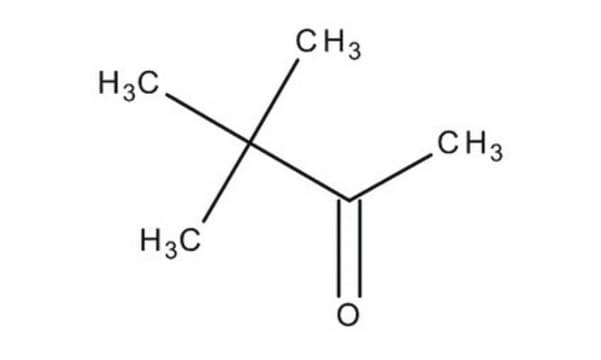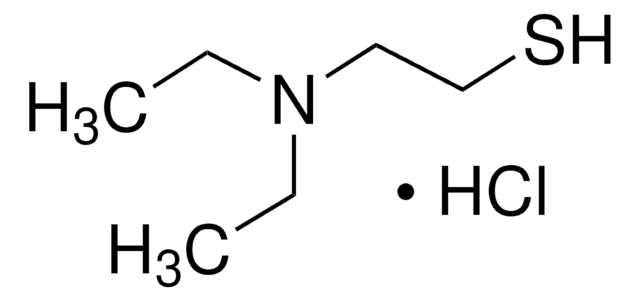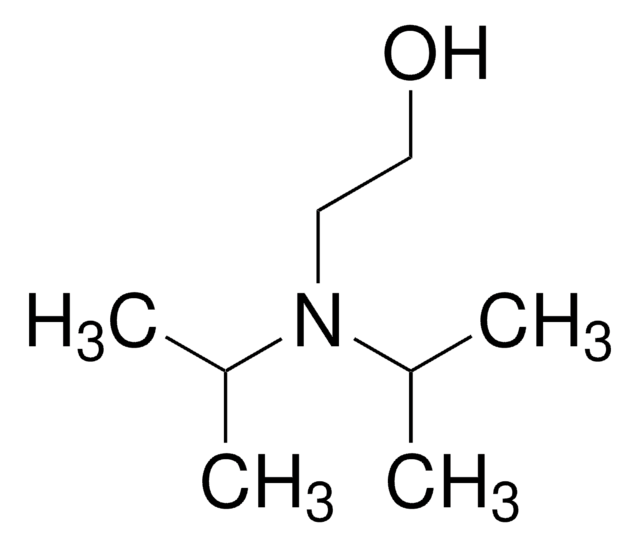136824
3,3-Dimethyl-2-butanol
98%
Synonym(s):
tert-Butyl methyl carbinol, Pinacoline alcohol, Pinacolyl alcohol
About This Item
Recommended Products
Assay
98%
form
liquid
refractive index
n20/D 1.415 (lit.)
bp
119-121 °C (lit.)
mp
4.8 °C (lit.)
density
0.812 g/mL at 25 °C (lit.)
SMILES string
CC(O)C(C)(C)C
InChI
1S/C6H14O/c1-5(7)6(2,3)4/h5,7H,1-4H3
InChI key
DFOXKPDFWGNLJU-UHFFFAOYSA-N
General description
Application
- To study the oxidation of secondary alcohols to ketones using cyclic microwave heating technique.
- To prepare aryl ethers by reacting with aryl iodide using 4-pyrrolidinopyridine ligand via Cu-catalyzed Ullmann reaction.
Signal Word
Warning
Hazard Statements
Precautionary Statements
Hazard Classifications
Flam. Liq. 3
Storage Class Code
3 - Flammable liquids
WGK
WGK 3
Flash Point(F)
78.8 °F - closed cup
Flash Point(C)
26 °C - closed cup
Personal Protective Equipment
Certificates of Analysis (COA)
Search for Certificates of Analysis (COA) by entering the products Lot/Batch Number. Lot and Batch Numbers can be found on a product’s label following the words ‘Lot’ or ‘Batch’.
Already Own This Product?
Find documentation for the products that you have recently purchased in the Document Library.
Customers Also Viewed
Our team of scientists has experience in all areas of research including Life Science, Material Science, Chemical Synthesis, Chromatography, Analytical and many others.
Contact Technical Service













